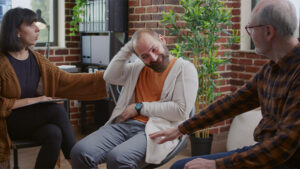Longevity is more than just living a long life; it’s about maintaining good health and quality of life well into your older ages. Achieving longevity involves a combination of healthy lifestyles, preventive healthcare, and evidence-based strategies that help individuals live longer while feeling their best.
In this guide, we’ll explore what is longevity of life, the concept of longevity medicine, and practical steps to promote healthy aging and reduce the risk of age-related diseases.
What Is Longevity?
Human longevity refers to living beyond the average life expectancy, with an emphasis on maintaining both physical and mental well-being. While genetics play a role in longevity, research suggests that lifestyle choices, environmental factors, and preventive healthcare have a greater influence on how long and how well we live.
Longevity is about increasing lifespan, expanding healthspan, and controlling or even reversing aspects of the aging process to maintain independence and good health as we age.
What Is Longevity Medicine?
Longevity medicine is an emerging field that combines medical practices, lifestyle interventions, and advanced technologies to promote longer and healthier lives. This approach focuses on preventing and treating chronic diseases, optimizing physical and mental health, and addressing age-related diseases before they become severe.
Common strategies in longevity medicine include:
- Personalized Health Plans: Tailored plans that combine diet, exercise, and preventive care.
- Screenings and Diagnostics: Early detection through tests like colonoscopies, mammograms, cardiac calcium scoring, and hemoglobin A1c tests.
- Medications and Supplements: Evidence-based treatments to support health and slow aging.
What Is Healthy Longevity?
Healthy longevity refers to the ability to enjoy life free from chronic conditions and physical limitations. While genetics contribute about 20-30% to longevity, the remaining factors are largely influenced by lifestyle choices and environment.
Factors contributing to healthy longevity include:
- Diet and Nutrition: Eating a balanced diet, such as the Mediterranean diet, which emphasizes whole foods, lean proteins, and healthy fats.
- Regular Physical Activity: Engaging in cardiovascular exercise, weight training, and flexibility exercises to maintain muscle strength and heart health.
- Social Connections: Maintaining strong relationships with family and friends to support emotional well-being.
- Preventive Healthcare: Regular screenings and check-ups to detect and manage potential health risks early.
- Stress Management: Practicing mindfulness and other stress-reducing techniques to promote mental clarity and well-being.

What Is the Key to Longevity?
There is no single secret to longevity, but several evidence-based practices can significantly impact your health and life expectancy. The key to longevity of life involves a combination of healthy habits, proactive healthcare, and social support systems.
Here are some important factors to consider:
Early Screening and Prevention
- Regular check-ups and health screenings can identify risk factors for cardiovascular disease, diabetes, and other chronic diseases, allowing for timely interventions.
- Recommended screenings include colonoscopies, mammograms, cholesterol tests, and blood sugar assessments.
Healthy Lifestyle Choices
- Adopt a Mediterranean diet rich in fruits, vegetables, whole grains, and healthy fats to provide essential nutrients and antioxidants.
- Incorporate regular physical activity, such as walking, swimming, or strength training, to maintain cardiovascular and muscular health.
Social and Emotional Well-Being
- Engaging in community activities, maintaining relationships, and having a sense of purpose are all linked to longer and healthier lives.
- Studies show that individuals with strong social ties experience better mental health and reduced stress levels.
Environmental Factors
- Living in areas with access to clean air, healthy food options, and medical care can significantly influence longevity.
- Reducing exposure to toxins and pollutants helps protect against age-related diseases.
How to Start Your Longevity Journey
If you’re looking to enhance your longevity, it’s important to take actionable steps tailored to your current health and lifestyle. Here’s a step-by-step approach to getting started:
- Assess Your Current Health:
- Work with a healthcare provider to evaluate your overall health status and identify areas for improvement.
- Prioritize Preventive Care:
- Schedule necessary health screenings and vaccinations to stay proactive in managing your well-being.
- Implement Small Changes:
- Start with manageable lifestyle adjustments, such as adding more vegetables to your meals or taking daily walks.
- Stay Consistent:
- Longevity is a long-term goal that requires consistency in healthy habits and regular check-ups.
The Role of Healthcare in Promoting Longevity
Healthcare providers play a crucial role in guiding patients toward longevity through routine check-ups, preventive screenings, and personalized treatment plans. At Aayu Clinics, longevity is an integral part of our approach, with patients encouraged to discuss their long-term health goals during annual check-ups or dedicated appointments focused on aging well.
By taking proactive steps and utilizing healthcare resources, individuals can effectively reduce the risk of chronic diseases, maintain good health, and enhance their overall quality of life.
The Bottom Line
Understanding what is longevity, and how it differs from merely living a long life, is essential for making informed choices about your health. By focusing on healthy aging, incorporating regular physical activity, following a nutritious diet like the Mediterranean diet, and addressing environmental and social factors, you can enhance both your lifespan and healthspan.
Whether you’re just beginning your journey or looking to optimize your current lifestyle, embracing the principles of longevity will help you achieve a longer, healthier life and enjoy the benefits of vitality well into your older years.





